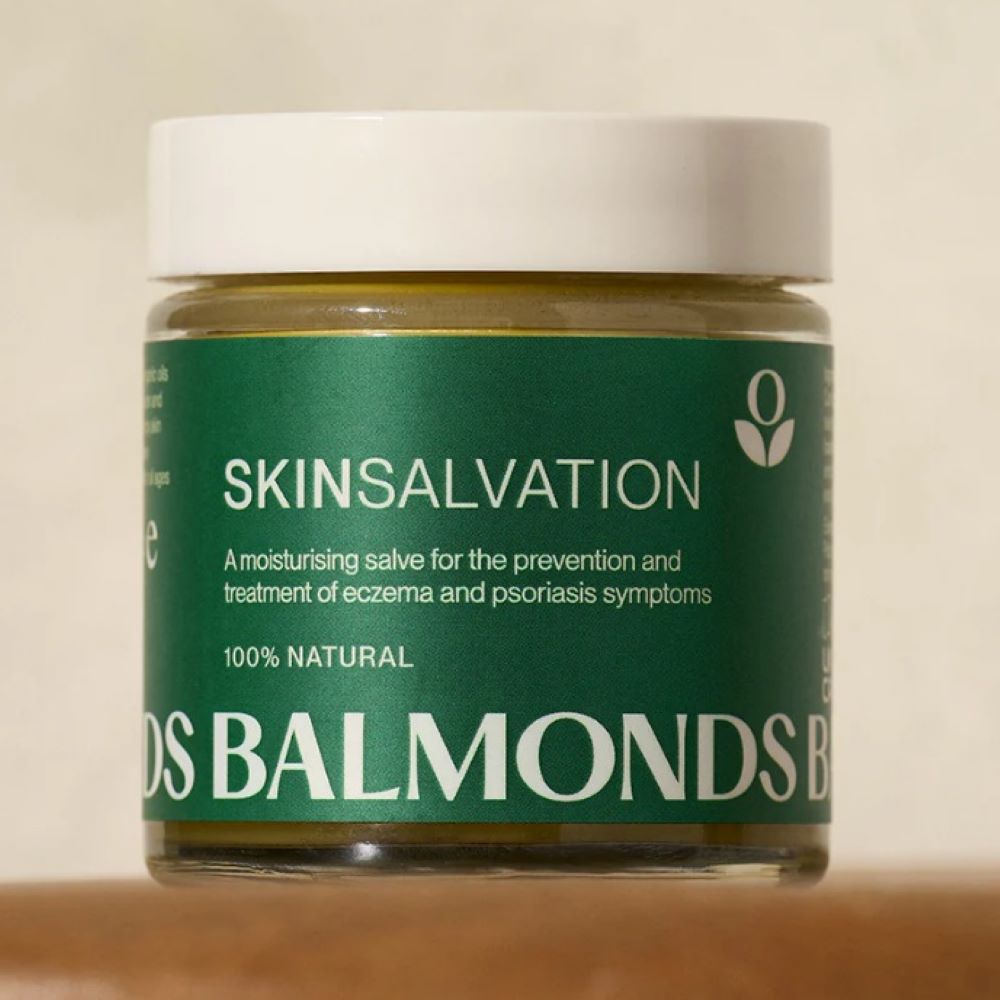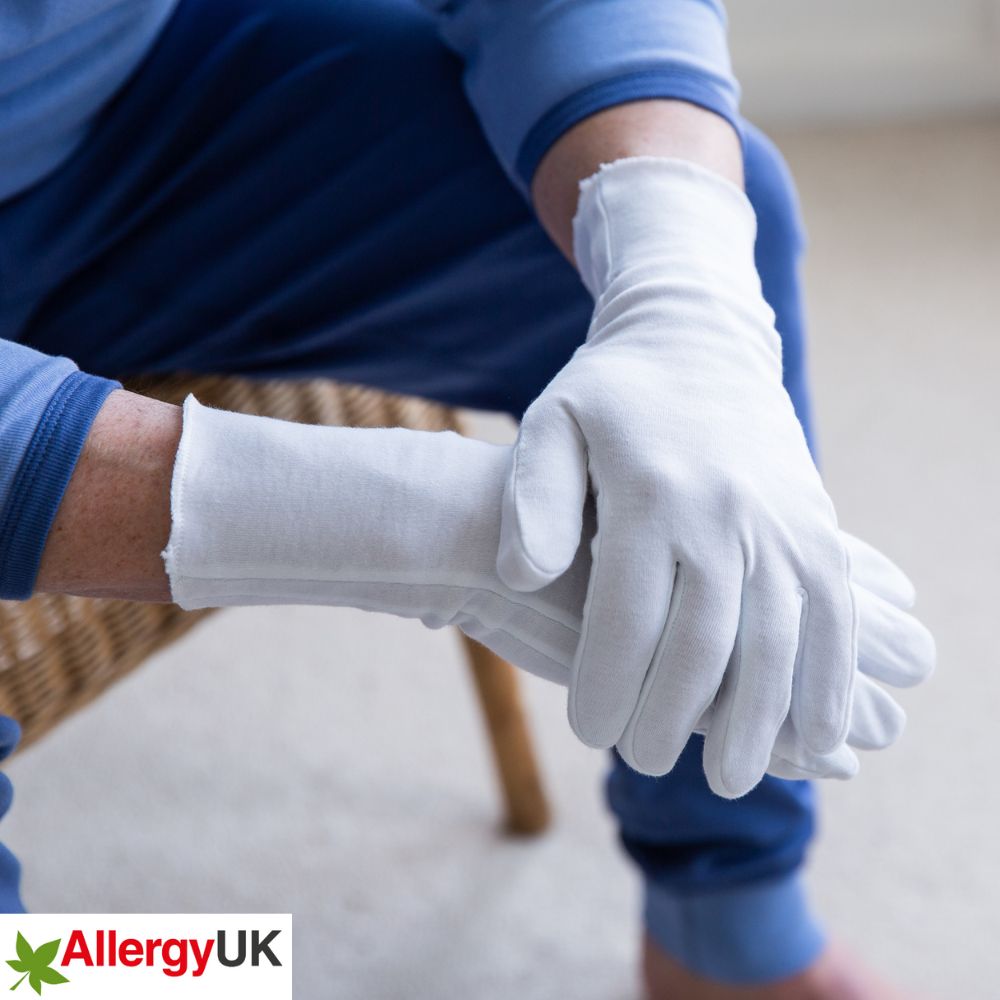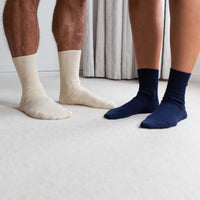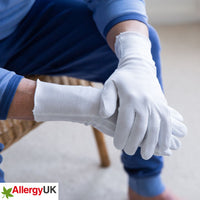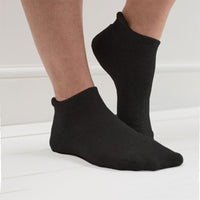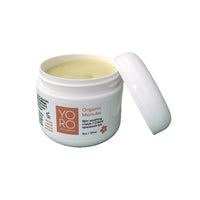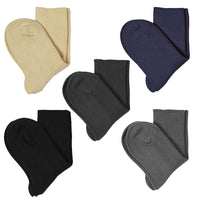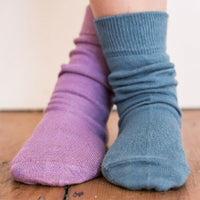
Worried about starting school with Eczema? The key is to be prepared - read on for our top tips
Worried about starting school with Eczema? The key is to be prepared - read on for our top tips
School can be tricky for kids with Eczema. From feeling itchy and frustrated, left out for wearing 'different' clothes, or being embarrassed about their skin.
But it’s not just the little ones, for parents and carers this can be a stressful time, especially if you’re new to Eczema or it’s their first year at school.
Like many things in life, we believe that the key to a smooth journey is preparation. Our MD Jo shares her tried and tested tips on how to prepare your child for school if they have Eczema.
Clothes
“Try to ensure at least their socks, pants and tights are Organic Cotton"

- Choose uniform that is 100% cotton and ideally organic
- At the very least ensure their underwear, socks and tights are made from organic cotton
- Cover arms & legs to protect skin from allergens and scratching
- Remove scratchy labels from clothing
- Wash school wear regularly and wash new uniform before wearing in non-bio washing liquid/powder
- Have spares – ideally keep a set at school to change into if blood / creams make them feel self-conscious
- Have several pairs of organic cotton gloves to wear when playing with paint, glue, or sand.
Food
“Why not give the teacher some treats they are allowed.”
- Do your kids also have a food allergy? If so, then find out their routine for the day re drinks/snacks/lunch and make sure they arrive prepared with their own food and water bottle.
- Why not give the teacher some treats they are allowed (e.g. Haribo are dairy/egg/nut free) in case there is a situation & they’re not left out.
- If anaphylaxis is an issue then a formal healthcare plan is required
Environment
“Carpets and grass can cause irritation”

- Dust, pollen and changes in temperature often trigger eczema. If possible suggest that they are not seated near an open window (pollen) or radiator (heat).
- Cover itchy arms/legs to reduce exposure to dust and allergens.
- If it’s hot it might be preferable to wear long sleeve shirts and trousers or try a tubi-grip to cover crooks of elbows / behind knees if your little one’s really want to wear shorts/ short sleeves.
- If they are likely to sit outside/on the floor make sure their teachers are aware that this could cause irritation and pack them off with their own playmat/pillowcase to sit on.
Medication & Creams
“Your child will need time out and the school needs to appreciate that.”
- Find out who the first aider on site is and explain the situation in advance to them and the class teacher/assistant. Provide a small jar of emollient plus any other medication (e.g. anti-histamine) and ensure that it is easily available and has clear instructions written on.
- Explain that washing hands / legs / arms / face then putting some cream on and re-covering with cotton clothing will likely help.
- Your child will likely need some time out for them or others to apply cream regularly or for doctor visit and the school needs to appreciate this
- If necessary, they may require a personal health plan – e.g. if they have prescription medicines to use at school. You should discuss this well in advance with the school. It is highly likely they will have come across kids with eczema / allergies in the past so ask them how they have dealt with this.
Mental Health
“Encourage your kids to share what is going on at school”

- If you have eczema you might feel different even if others don’t notice.
- Do encourage your kids to share what is going on at school and identify if they feel singled out for their skin condition. If you’re concerned, talk to the teacher first and encourage them to use age-appropriate stories or activities to help the class understand what eczema is and how it affects your child.
- There are some great resources out there and so many kids have eczema you’ll be doing them a favour by teaching them about it early. Scroll to bottom for downloadable pack from NES.
- Explain to the teacher that telling them to ‘stop scratching’ won’t be helpful, rather suggest they ask the child what the triggers are and if there is something that might help.
- Find a trusted adult at school that your child would be happy to speak to. Keep in touch with them regularly and encourage them / your child to talk if they are worried about anything.
Your Child
“If they sense you are stressed about it they will be too”
This is an opportunity for them to build some independence – encourage them to think of this as a positive and over the summer holidays give them more opportunities to manage their own situation and feel more grown up.

- Encourage them to put their own emollient on during the day / evening and if out and about give them a rucksack or bumbag with their emollient and gloves in.
- At night time put a bottle of water plus spare pair of PJ’s and pillow case in the fridge that they can help themselves to (or ask you to get them) if they feel hot and itchy.
- Make school something exciting to look forward to, if they know you are stressed about it they will be too and this might exacerbate their eczema.
- Try and find some coping mechanisms to help them control itching, like tapping the itch or providing fidget spinners / toys.
In the car and at home
- Bring a cool cotton top with you for them to change into in the car if they are feeling hot and itchy (like our open hand mitten T).
- When you get home make it fun to jump in a shower or bath and put on some emollient before putting on comfy cotton PJ’s or clothes to relax in

If you’re looking for more tips and tricks then click here for a great resource of from the National Eczema Society.

